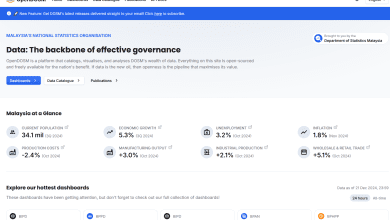The Quran Is Explicit
Muslims believe the Quran was revealed by angel Gabriel to Prophet Mohammed (peace be upon him) and it is the principal text that Muslims abide by.
Below are some of the edicts of the Quran on some pertinent issues.
Equality
The Quran states that all men are the descendants of one man Adam and are therefore brothers.
“ . . . an Arab is not better than a non-Arab, a white person is not better than a black person nor is a black person better than a white person . . .”
The emphases on equality and justice appear throughout the text and even include one’s enemies.
A Malay is no better than a non-Malay nor vice versa. There cannot be Ketuanan Melayu or Ketuanan Cina or Ketuanan India.
The Quran states that all men are created equal and it is only good deeds that elevate one above another.
Rights of minorities and other religious groups
The Quran prohibits any form of compulsion or restraint to influence the religious practices and beliefs (of others). It goes further by obligating Muslims to protect all “cloisters and churches and synagogues and mosques in which God’s name is remembered”.(Surah 22:04). This obligation extends to all ethnic, cultural and religious groups.
Religious minorities, therefore, must be allowed to worship without harassment and bureaucratic impediments. All places of worship must be given the same consideration. Muslims cannot demand that churches cannot operate in certain areas.
On Corruption
“And do not consume one another’s wealth unjustly or send it (in bribery) to the rulers in order that (they might aid) you (to) consume a portion of the wealth of the people in sin, while you know it is unlawful” (Surah:2:188)
In our case it is often the rulers (politicians) who are bribing us especially when elections are in the offing. This is un-Islamic.
Freedom of religion
The most quoted verse from the Quran is of course Al-Baqara 256 that “there is no compulsion in religion”.
There is no need to add to this for it is very clear what it means.
If the Quran were followed there would not be the racial discrimination we see today. Corruption would not be blatantly practised as has been for decades – not just 1MDB but even during Mahathir’s time.
During the time of Tunku Abdul Rahman, Malaysians had a “live and let live” attitude. Religious minorities were not harassed. Churches and other places of worship did not have the bureaucratic hurdles and hoops they had to jump through today.
Liberal Muslims were left alone without peer pressure (or cleric pressure) on them. Tudungs were worn or not worn as the individual pleased. Muslims ate at the same table as their non-Muslim friends in coffee shops. They partook of drinks and food in their non-Muslim friends’ house without reservation – leaving it to their friends’ common sense to abide by their religious requirements. There were no religious police spying on the ‘sinners’.
Religion was considered a personal matter between a person and his creator.
There was less corruption, there was no institutional racism and all that when Islam was practised inwardly, piously rather than shown outwardly in one’s garb or attendance on Fridays.
Religion was not used as a political tool by the government.
But of all the teachings in the Quran we almost never hear of The Golden Rule.
Pope Francis in his address to the joint session of Congress brought up the Golden Rule: “Do Unto Others What You Want Others To Do Unto You.”
The Golden Rule is not exclusive to Christianity; it is in the teachings of all the major religions, including Islam.
Islam’s version of the Golden Rule:
“None of you have faith until you love for your neighbour what you love for yourself” (Sahih Muslim).
“Do unto all men as you would wish to have done unto you; and reject for others what you would reject for yourselves.” (Abu Dawud).
In the Malaysian context of the Golden Rule Muslims should ask ourselves how they would feel if they were racially discriminated against – with all the real consequences of institutional racism.
To know this you need to walk a mile in the other man’s shoes.
We already have the answers to how our country can be peaceful and progressive, it’s a matter of insisting that those in power apply them.
Indeed if all Malaysians abided by the positive teachings of their religion our country would be a peaceful one and would not be beset by the problems we have today.
Yin
(the man from TR)


